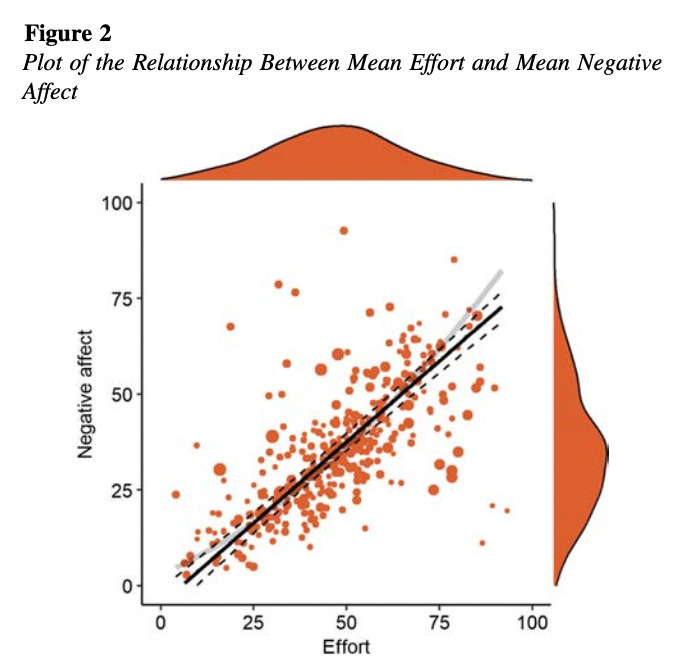Humans are lazy.
I don’t mean that in a negative sense. But we all take shortcuts, we use rules of thumb, and we generally try to make things as easy as possible on ourselves. Psychologists have found that people tend to follow the “law of less work.”
A new meta-analysis on “the unpleasantness of thinking” finds that, as a task requires more effort, we tend to find it less enjoyable. As Figure 2 from the paper shows, the more effort that we have to put in, the greater our negative affect.

The implications for education are pretty clear, if a little distasteful: Just because schools make learning opportunities available, kids won’t necessarily use them. We’ve seen this in tutoring programs and well-designed digital learning tools like Khan Academy.
There will always be some kids who naturally want to learn for learning’s sake. Without being pushed too hard, they’ll learn their times tables, study maps and memorize capitals, or teach themselves how covalent bonds work. But for most of us, these things are complicated and hard.
And if we want most kids to learn complicated and hard things, they will need encouragement, a nudge, or potentially even a shove. As I’ve written before, schools should consider carrots like prizes and awards, sticks like quizzes and homework, or policies like mandatory tutoring sessions during the school day.
There are no shortcuts to learning. Kids (and all humans) don’t really do voluntary.
This is one of the reasons why I’m worried that schools have shifted away from teaching kids facts and knowledge about the world. It’s easy to “think critically” about some vague and fluffy topic, but it’s much harder to understand the root causes of a war or how a global pandemic spreads.
But, as Dan Willingham has written, kids can’t learn generic “thinking skills” without facts. They can’t learn math, write a poem, or summarize a new research study by asking Google or Chat GPT. That doesn’t require any thinking, and it won’t make them any smarter.
In short, learning is hard, but it’s the job of educators and parents to help kids put in the hard work so they can gain concrete knowledge and skills.

